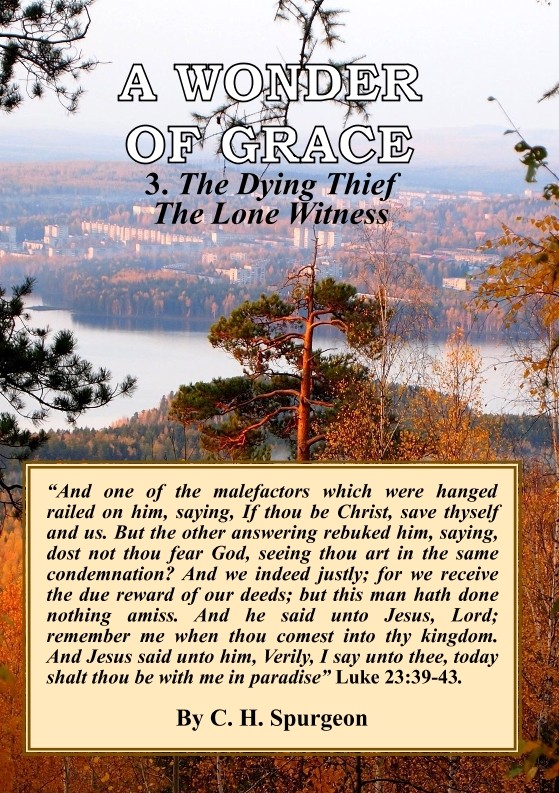
A Wonder of Grace - 3. The Dying Thief - The Lone Witness
By Charles Spurgeon
Extract
A Wonder of Grace
C. H. Spurgeon
3. The Dying Thief — The Lone Witness “And one of the malefactors which were hanged railed on him, saying, If thou be Christ, save thyself and us. But the other answering rebuked him, saying, dost not thou fear God, seeing thou art in the same condemnation? And we indeed justly; for we receive the due reward of our deeds; but this man hath done nothing amiss. And he said unto Jesus, Lord; remember me when thou comest into thy kingdom. And Jesus said unto him, Verily, I say unto thee, today shalt thou be with me in paradise.” Luke 23:39-43. The dying thief was certainly a very great wonder of grace. He has generally been looked upon from one point of view only, as a sinner called at the eleventh hour, and therefore an instance of special mercy because he was so near to die. Enough has been made of that circumstance by others: to my mind, it is by no means the most important point in the narrative. Had the thief been predestined to come down from the cross and live for half a century longer, his conversion would have been neither more nor less than it was. The work of grace which enabled him to die in peace would, if it had been the Lord’s will, have enabled him to live in holiness. We may well admire divine grace when it so speedily makes a man fit for the bliss of heaven, but it is equally to be adored when it makes him ready for the battle of earth. To bear a saved sinner away from all further conflict is great grace; but the power and love of God are, if anything, even more conspicuous when, like a sheep surrounded by wolves, or a spark in the midst of the sea, a believer is enabled to live on in the teeth of an ungodly world and maintain his integrity to …